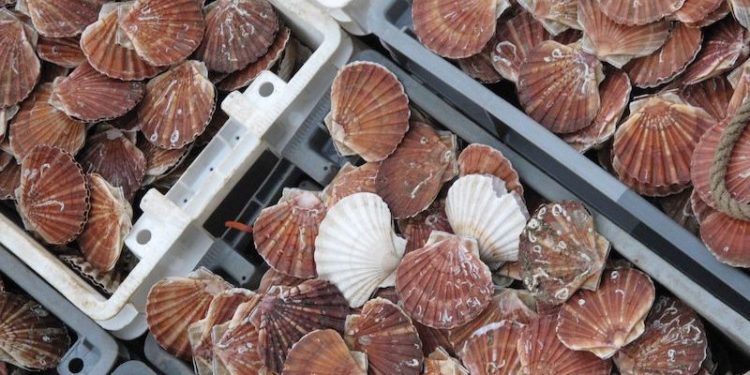The European Marine Fisheries Fund (EMFF) has provided a six figure grant to make further improvements to the sustainability of six UK fisheries as part of Project UK Fisheries Improvements. These six fisheries have been selected by the UK supply chain due to their importance for the UK market.
The project is focussed on improving UK fisheries for North Sea plaice and lemon sole, South-West crab and lobster, Channel scallops and South-West monkfish.
According to the MSC, the aim is to improve the data, impacts and understanding of these fisheries and to highlight best practice so that all six fisheries with that these fisheries could be entered into MSC assessment within five years.
The project is facilitated by the MSC and carried out by multi-stakeholder Steering Groups involving the fishing industry, fishery managers, scientists and supply-chain. The MSC is working in conjunction with the stakeholders to bring investment into the UK Fishing industry.
The €250,000 grant will provide funding for, among other projects, a postdoctoral scientist to conduct research into the Channel scallop fishery. It will also provide funds for Cefas to carry out data assessments and research to understand more about the fisheries and fill in the gaps in their sustainability with work starting shortly.
Project UK Fisheries Improvements is the latest large fisheries project to receive funding from EMFF. It is an innovative project working towards an environmentally sustainable future for UK fisheries by running Fishery Improvement Projects (FIPs) on six UK fisheries.
‘As the chief source of scientific fisheries advice to the UK Government, and expert advisers to regional and international bodies, Cefas has extensive experience in informing policy and management decisions,’ said CEFAS Lead Scientist for the project Dr Stephen Mangi.
‘For Project UK Fisheries Improvement (PUFKI), our team of fisheries scientists will provide analysis and advice to ensure that the MSC fishery improvement programmes or the six commercially important species are underpinned by rigorous and scientifically credible data and information. PUKFI has developed and is in the process of implementing action plans for each fishery and will track progress using the MSC’s bench-marking and tracking tools as they work towards MSC sustainability certification.’
‘The Fisheries & Conservation Science Group in the School of Ocean Sciences at Bangor University, working in collaboration with the University of York, brings together the top scallop expertise in UK Universities,’ commented Professor Michel J. Kaiser, chair in Marine Conservation Ecology at Bangor University.
‘The team will bring together the current information of the distribution of fishing activity, the distribution of ETP species and will model its effect on the seabed, based on recent influential publications. One of the first tasks will be to consult with industry to ensure that the mapped layers of fishing activity we have relate their view of the distribution of the fishery. The science that comes out of this work will provide the industry with an assessment of those areas where changes will be needed in the amount, frequency or distribution of fishing activity to move it to a more sustainable footing,’ he said.
‘It’s great that PUKFI has secured this EMFF funding to invest in the British fishing industry and help plug data gaps and drive improvements in these fisheries,’ added the MSC’s Claire Pescod.
‘The MSC FIP tools have provided an extremely useful template to help the project develop Action Plans specific to each fishery, identify where improvements are needed and actually implement changes on the water.’
She added that as market demand grows for sustainable seafood, more and more fisheries around the world are making improvements to get MSC certified and gain better access to these markets. This has led to a huge growth in ‘Fishery Improvement Projects’ (FIPs). Each project is a structured process to guide fisheries to fill in any gaps in their environmental sustainability.









